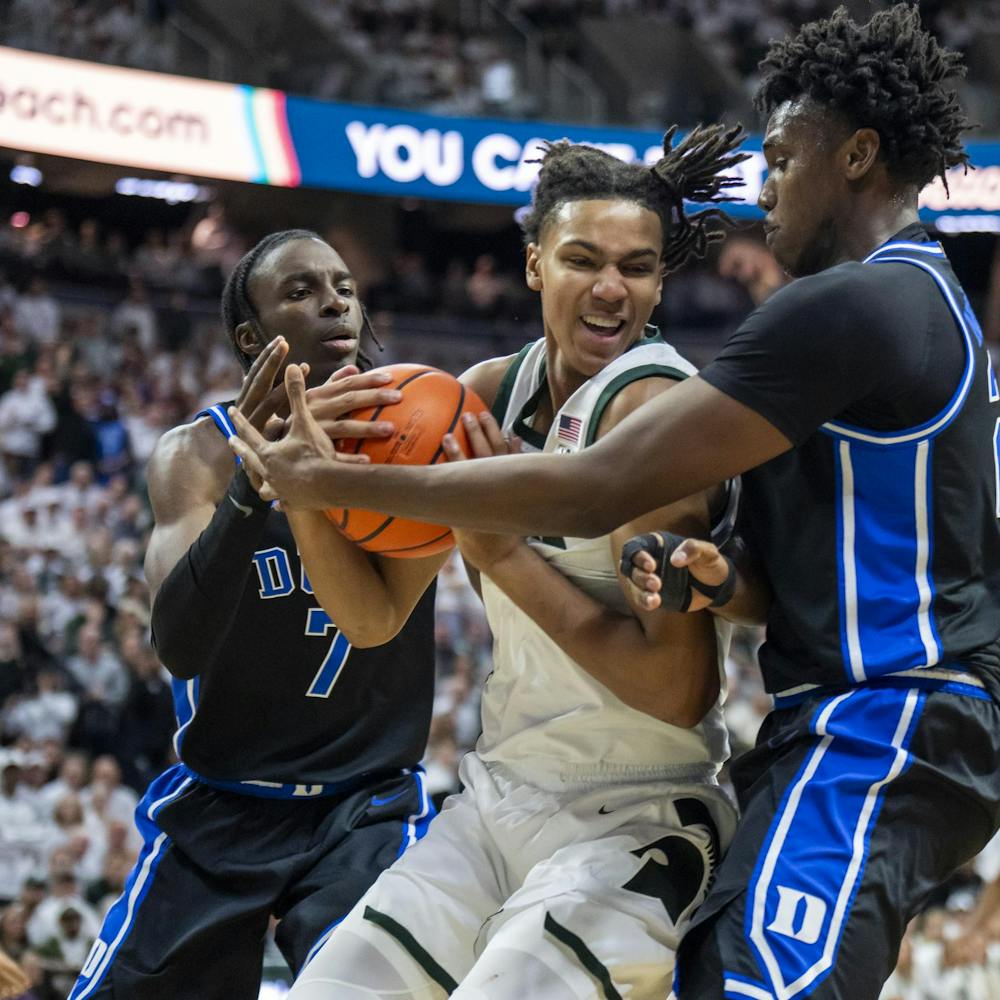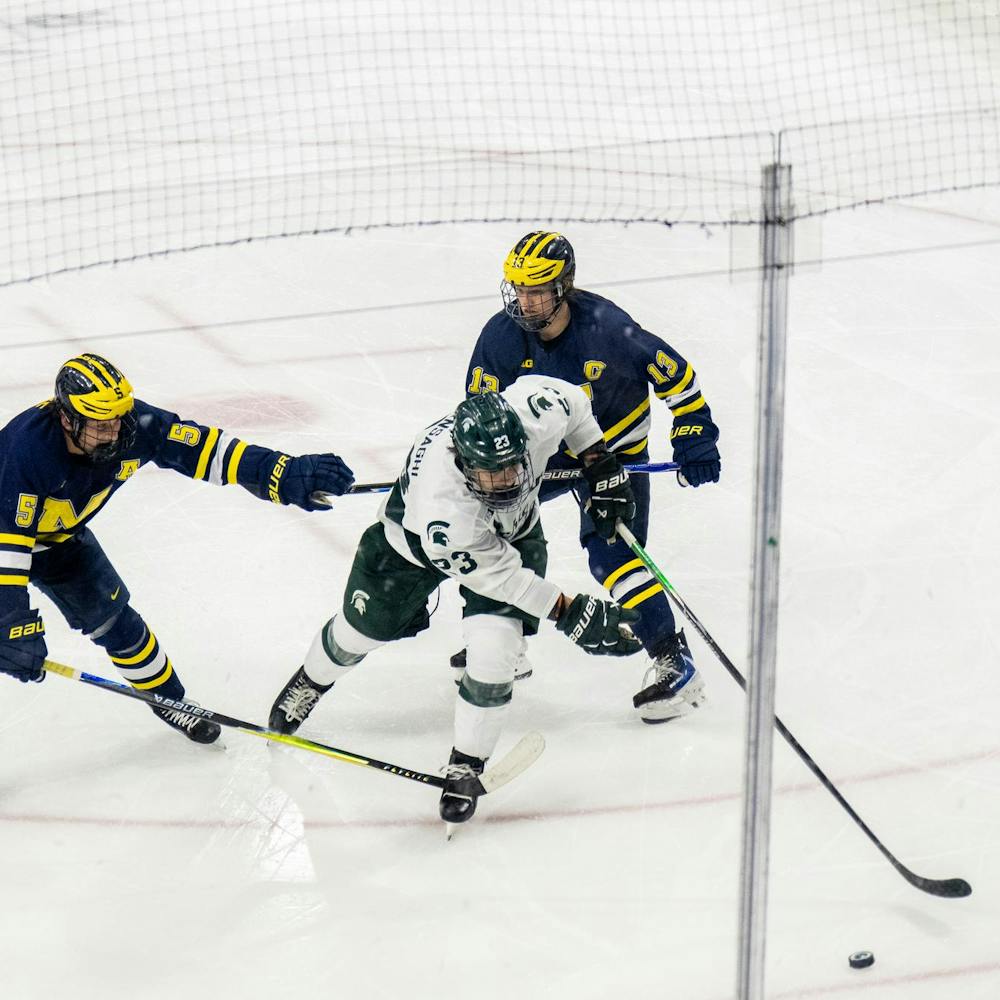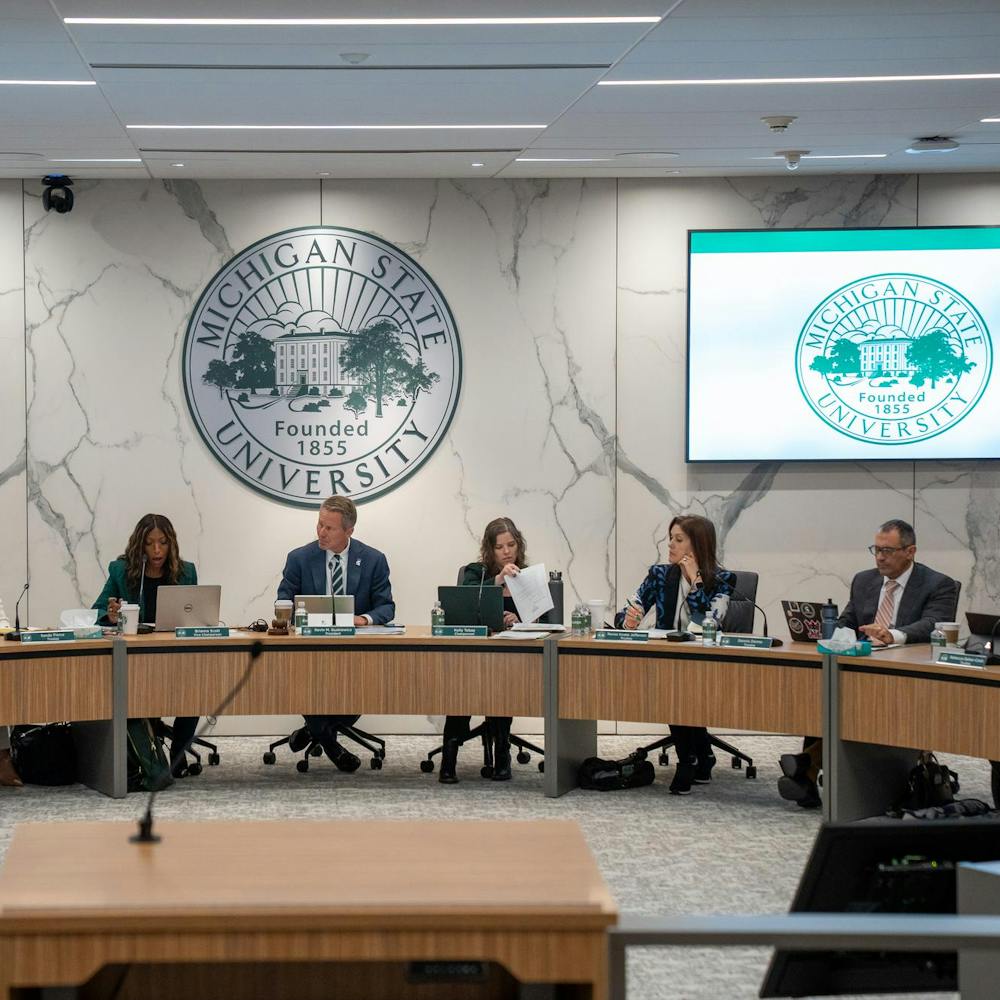At 28 years old, Jason Noakes is far from where he started a little more than a decade ago as a college freshman. In 2001, the now-history senior began his college career at Ferris State University. His plans were to study for four years to become a cop.
Less than a month into his freshman year, however, the tragic events of Sept. 11 occurred, and Noakes decided to finish an associate’s degree in criminal justice as fast as he could and then joined the Army in February 2004.
In the fall of 2009, Noakes enrolled at MSU using the benefits of the Post-9/11 GI Bill — a bill providing support for veterans who have served for at least 90 days following Sept. 10, 2001. Veterans and their beneficiaries receive money for expenses such as tuition, books and supplies and a monthly housing allowance. The amount can vary based on the length of time the student veteran served.
Noakes is one of about 284 student veterans using the benefits of the GI Bill at MSU, University Registrar Nicole Rovig said. There also are 154 spouses, children and dependents of veterans using GI Bill benefits at MSU.
Across the nation, approximately 400,000 student veterans are enrolled using the GI Bill for the 2012 spring semester, Department of Veteran Affairs spokesman Randy Noller said.
But even with the additional support, student veterans still struggle to find their place at MSU.
Adjusting to civilian life
Like many veterans returning to school, adjusting to life as a college student has not been easy for Noakes.
Noakes said it’s tough not to get mad when he sees the other students with habits he learned not to do in the military, such as putting books away before class is over or not holding the door open.
“It’s ingrained that you do things a certain way,” he said. “You have to recognize the fact that you’re angry and let it go. That’s just part of the transition.”
For environmental biology-zoology sophomore Colin Bright — a sergeant in the Marine Corps. from 2006 to 2010 and vice president of the MSU Student Veterans of America, or SVA, organization — working alongside 17- and 18-year-old recent high school graduates can make it easy for student veterans to feel left out.
Bright left the service looking to experience life outside the Marines and decided to come to MSU in 2010.
“I didn’t want to pass up the opportunity to better myself, so I left the Marines and came to MSU to earn a degree in environmental biology-zoology,” Bright said. “I also left when I did because I didn’t want to miss out on the typical college-kid experience.”
Although groups such as the SVA exist at MSU to help student veterans transition, Bright said the SVA is more of a social group to help with the social aspect of college.
“It would be really helpful to have a consolidated place that veterans can go to for any advice or to have any questions they may have answered,” Bright said. “As of now there are several smaller groups that you can go to, but it’s not very efficient.”
Noakes and other student veterans at MSU have found help adjusting to college life through the Resource Center for Persons with Disabilities, or RCPD.
Veterans get help from the RCPD through counseling and receiving accommodations in class if needed, such as testing in a separate room or receiving an extended amount of time to take tests because of hypersensitivity to sounds, among other reasons, psychiatric disabilities specialist John Pedraza said.
Pedraza works with student veterans through the RCPD to help ease the mental transition into college life.
“They have served our country, and they deserve any way we can show our thanks and appreciation,” Pedraza said. “We feel it’s something they have earned.”
Moving on from war
Noakes was on active duty for four and a half years, serving in two elite units, including the 82nd Airborne Division out of Fort Bragg, N.C., and in the Army Reserve for another three and a half years. While on active duty, Noakes was deployed for a year to Afghanistan and for 15 months to Iraq.
After being off active duty, Noakes decided to go back to college after not being able to find a steady job.
Support student media!
Please consider donating to The State News and help fund the future of journalism.
“There aren’t a whole lot of transferable skills that work really well with the civilian world,” Noakes said.
With the Iraq War ending in December 2011 and the Afghanistan War coming to a close, colleges and universities already are seeing an increase in the number of student veterans resuming their education.
Noller said more than 923,000 student veterans used the GI Bill for the 2011 fiscal year — an increase of about 360,000 student veterans from the 2009 fiscal year.
Bright said although he received help and had his GI Bill activated fairly quickly, he’s heard “horror stories” of other student veterans attempting to navigate the system.
For Noakes, it took a month to figure out how to use the GI Bill, and he was unable to find the necessary resources for himself, his wife Michele and his 3-year-old daughter, Riley.
“I didn’t find out about child care grants until this year,” Noakes said. “No one told me about employment for (my wife). There was nothing to help us with the transition.
I didn’t even know where to live.”
A place of peace
Unlike some schools, MSU currently does not have an office or lounge designated for student veterans, and Noakes said he has been trying to start the initiative to get an office and lounge similar to Indiana University, but has had little luck.
In Indiana’s lounge are several computers, flat-screen TVs and access to math tutoring, said Margaret Baechtold, Indiana’s Veterans Support Services director.
MSU’s Assistant Vice President of Student Affairs Pat Enos said she has attended meetings with officials from other universities for the last couple months to potentially bring something similar to Indiana’s office and lounge to their colleges.
“I’m hoping (MSU) will have something like that in the not too distant future,” Enos said. “But no decision has been made.”
Pedraza is positive an office that will be able to help more student veterans than is currently possible will be set up in the future, although he is not sure when.
“I think there will definitely be an office,” Pedraza said. “An office definitely could serve a broader number of veterans.”
Although there isn’t an office or lounge to help veterans or point them in the right direction, the RCPD has taken the lead in helping veterans find the necessary resources by helping set up the Student Veterans Information website as the first step toward the ultimate goal of a veteran advocacy office, Pedraza said.
Still, Noakes said student veterans need to take it upon themselves to make the most of their college experiences and move past the difficulties they might have faced from war.
“If (veterans) don’t challenge themselves, if they don’t work to change, then it’s never going to come,” Noakes said. “You have to force yourself to do things you don’t necessarily like, you just do it in baby steps.”
Discussion
Share and discuss “From combat to campus” on social media.






